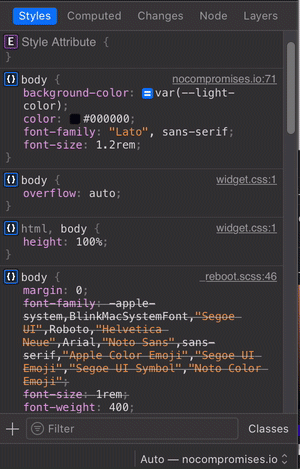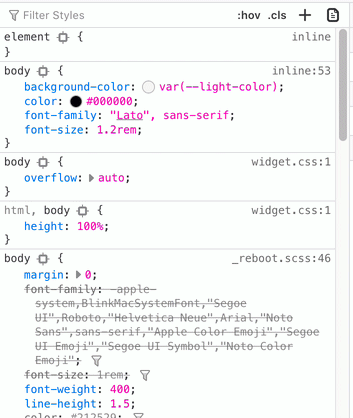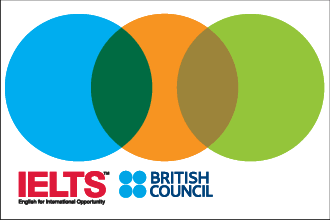Connecting with others, especially when your path feels different, can bring so much strength and joy, a sense of belonging that truly makes a difference in life. Many people, you know, find themselves on a personal journey of discovery, often facing what seems like big hurdles just for being who they are or loving who they love.
This journey, you see, often involves finding spaces where one can truly be themselves, where different backgrounds and experiences come together to form something powerful. It is about understanding the various pieces of identity, how they fit, and how they sometimes push against what society expects. For instance, sometimes a very close bond between two straight friends can, in a way, feel like it almost borders on a different kind of connection, showing how feelings can flow in unexpected ways.
For folks who identify as lesbian, gay, or bisexual in places like the United States, there are, you know, still many moments where unfair treatment or even harshness can pop up just because of who they are attracted to. This makes finding a supportive community, one that celebrates all aspects of a person, quite important. It is about creating a place where every person, with all their unique parts, feels truly seen and valued.
- Icn Transit Airport Fly Out
- Huey Say Something Deep
- When Does A Comet Become A Meteor Edits
- Aroob Jatoi Viral Video
- Fore Finger One Thumb Necklace Meaning
Table of Contents
- The Heart of Connection: Building Community
- What Does "Interracial" Mean in Our Connections?
- Facing Challenges: Overcoming Obstacles in Lesbian Interracial Wrestling
- How Does Identity Shape Our Shared Experiences?
- Finding Your Voice: Expression and Artistry
- Where Can We Find Spaces for Openness?
- The Power of Acceptance: Celebrating Differences
- What Does Support Look Like for Everyone?
The Heart of Connection: Building Community
Building a sense of togetherness, a true community, is something that, you know, really matters for everyone, especially for those whose way of loving or being is not always understood by the wider world. It is about creating a place where people feel safe and heard, where they can share their stories and their lives without worry. For lesbian people, this shared space often becomes a lifeline, a source of true comfort and belonging. It is where bonds are made, where laughter is shared, and where support is always there, kind of like a warm blanket on a cool evening. These connections are the very foundation of a thriving group, helping everyone feel a bit more at ease.
Think about it, a community is not just a collection of individuals; it is a living, breathing thing made up of shared experiences and mutual care. When people feel seen for who they truly are, it makes a big difference. This includes understanding that for many, their identity, including their sexual orientation, is a very core piece of who they are, shaping their whole world. So, when people come together, they are not just meeting; they are weaving a rich tapestry of lives, supporting each other through thick and thin, and creating a space where everyone can feel a little more whole.
In these kinds of spaces, people can talk about what it means to be lesbian, to live that life, and to celebrate that culture. It is where, you know, the everyday happenings and the bigger life moments are discussed, where people can truly connect over shared joys and difficulties. This open conversation helps to build a stronger, more understanding group, where everyone feels like they have a voice and a place. It is a really important part of feeling connected, and for many, it is where they find their true family.
What Does "Interracial" Mean in Our Connections?
When we talk about "interracial" in the context of connections, especially within a community like the lesbian one, it is about more than just skin color. It is, you know, about the beautiful mix of backgrounds, cultures, and life journeys that people bring with them. Imagine a group where folks come from all sorts of places, with different family traditions, different ways of looking at the world, and different stories to tell. That is what "interracial" truly means here – a coming together of many diverse threads.
This mixing of backgrounds, you see, adds a richness to the group, a kind of depth that might not be there otherwise. It is about how these different life experiences, these varied perspectives, meet and interact. Sometimes, this interaction can feel like a gentle dance; other times, it might be more like a spirited discussion, a kind of internal "lesbian interracial wrestling" of ideas and understandings. But always, the goal is to learn from one another, to grow, and to build stronger, more empathetic bonds.
Understanding these different backgrounds helps everyone in the community to be more thoughtful and open-hearted. It means recognizing that someone's journey as a lesbian person might be shaped in unique ways by their cultural heritage, their family's history, or the specific challenges they have faced. So, the "interracial" piece really just points to the beautiful variety of human experience, and how that variety makes our shared spaces so much more vibrant and interesting, honestly.
Facing Challenges: Overcoming Obstacles in Lesbian Interracial Wrestling
You know, the journey for many people, especially those in the lesbian community, often involves a kind of personal wrestling match with societal expectations and unfair treatment. When we think about the idea of "lesbian interracial wrestling," it is almost like picturing the different battles people from varied backgrounds face. These struggles are real, and they can feel quite heavy. People who are lesbian, gay, or bisexual in places like the United States, unfortunately, run into a lot of unfair judgments, unkind actions, and even harshness just because of who they are drawn to. It is a constant push and pull, a fight for basic fairness.
These difficulties can show up in many ways, from small, hurtful comments to bigger, more damaging experiences. For instance, some individuals have had to recover from what is called "conversion therapy," a practice that tries to change a person's sexual orientation. This kind of experience leaves deep marks, and the path to healing from it is, you know, a very personal and often difficult one. It shows the kind of intense struggle some people have to go through just to be themselves, a kind of intense "lesbian interracial wrestling" with harmful ideas.
Overcoming these obstacles requires a lot of inner strength and, very importantly, the support of others. It means finding ways to stand tall even when things feel tough, and leaning on the community for comfort and encouragement. The shared experience of facing these challenges can, in a way, bring people closer, creating a bond that is forged in resilience. It is about finding the courage to keep going, to keep being true to oneself, despite the world's sometimes unkind reactions. This collective strength helps individuals push past the difficulties, step by step.
How Does Identity Shape Our Shared Experiences?
Our identity, you see, is like a complex puzzle, with each piece adding to the whole picture of who we are. Sexual orientation, for example, is a very important piece of that puzzle. It includes who we are drawn to, both in a loving and emotional way, and how we choose to connect with others because of those feelings. This piece of identity, you know, really shapes how we move through the world and how we experience things, even within a group like the lesbian community. It is a fundamental part of a person's make-up.
When you bring together people with different identities – someone who is lesbian, someone who is also of a different racial background, someone who might also be transgender – the shared experiences become even richer and more layered. Transgender, for instance, is a broad term for people whose inner sense of being male or female, or how they show that to the world, is different from what was expected when they were born. So, when these various parts of identity meet, it creates a unique kind of shared journey, a kind of "lesbian interracial wrestling" of different perspectives coming together.
These varied identities mean that what might be a common experience for one person could be quite different for another. Understanding this variety is key to building a truly welcoming and inclusive community. It is about recognizing that everyone's story is valid and important, and that these individual stories, when shared, create a deeper, more textured understanding for everyone involved. It is a continuous process of learning and growing, making sure that every voice is heard and every experience is valued, basically.
Finding Your Voice: Expression and Artistry
Finding ways to express who you are, to share your inner world with others, is a really important part of life, you know. For many people in the lesbian community, this expression often takes the form of art, music, or other creative outlets. It is a way to tell their story, to celebrate their identity, and to connect with others on a deeper level. Think about a lesbian musician, for example, someone who pours their heart into their songs, using their voice and their instrument to share their feelings and experiences. That is a powerful kind of expression, honestly.
Music, in particular, has a way of speaking to the soul, of bringing people together. When a lesbian musician plays a favorite song, like a cover of "All These Things That I've Done" by The Killers, it is more than just notes and words. It is a piece of their heart, a connection to something bigger. This kind of artistic sharing helps to build community, offering a common ground where people can feel understood and inspired. It is a beautiful way to show who you are, and it often encourages others to find their own ways to express themselves, too, it's almost a shared journey of sound.
Beyond music, there are so many ways people express their identity and their experiences. Some might create visual art, write stories, or even engage in discussions about lesbian life and culture. These conversations are vital; they are where people can talk about what matters to them, share their joys, and work through challenges. It is all part of finding and using your voice, making sure that the unique perspectives within the community are heard and valued, creating a kind of "lesbian interracial wrestling" of creative ideas, you know, a spirited exchange.
Where Can We Find Spaces for Openness?
Finding places where you can be completely open, where you feel safe to share all parts of yourself, is, you know, a true gift. For many in the lesbian community, these spaces are incredibly important. They are where people can let their guard down, connect authentically, and explore different aspects of their identity and desires without judgment. These might be online communities, local gatherings, or even just very close friendships that feel like a safe haven, where, you know, the bond is so strong it almost feels like a different kind of love, even if everyone involved is straight.
Some of these spaces are dedicated to discussing the everyday realities of lesbian life and culture. They are places where people can talk about relationships, challenges, joys, and everything in between. These conversations help to build a shared understanding and a sense of belonging. Other spaces might be more focused on specific expressions of intimacy and desire, like online groups dedicated to celebrating women being sexual with one another, or places where content like lesbian foot worship videos or lesbian porn is shared. These are also, you know, spaces for openness and expression, just in a different way.
The important thing is that these spaces exist, offering different avenues for connection and self-discovery. They are places where people can explore their feelings, their attractions, and their desires in an environment that is meant to be accepting. It is about creating a variety of options so that everyone can find the kind of openness that feels right for them, a place where they can truly be themselves and engage in their own kind of "lesbian interracial wrestling" with ideas about intimacy and connection, basically.
The Power of Acceptance: Celebrating Differences
Accepting people for who they are, with all their unique qualities, is a truly powerful thing, you know. It means embracing the full spectrum of human experience, including the many different ways people love and express themselves. When we talk about celebrating differences, especially within a group like the lesbian community, it means valuing every person's background, their personal journey, and their unique way of seeing the world. This kind of acceptance builds a much stronger, more vibrant community, a place where everyone feels like they truly belong.
Think about how rich a group becomes when it includes people from various racial backgrounds, each bringing their own cultural stories and perspectives. This diversity, you see, is not just something to tolerate; it is something to actively celebrate. It adds depth and understanding to every interaction, making the community more resilient and more interesting. This coming together of different experiences, this kind of beautiful "lesbian interracial wrestling" of diverse lives, creates a truly dynamic and supportive environment, where everyone can learn and grow from one another.
This celebration of differences also extends to how people express their sexual and emotional attractions. It means recognizing that for some, their friendships might be so incredibly close that they feel a bond that, you know, almost borders on a different kind of love, even if they identify as straight. It is about acknowledging the fluidity of human connection and appreciating the many forms that love and intimacy can take. This broad acceptance makes the community a truly welcoming place for everyone, allowing for genuine connection and understanding.
What Does Support Look Like for Everyone?
Support, you know, can take on many forms, and it looks a little different for everyone, depending on what they need. For people in the lesbian, gay, and bisexual communities, support often means having a safe place to turn when facing unfair treatment or unkindness. It is about having friends, family, or community members who stand by you, who listen, and who offer comfort when things get tough. This kind of backing is absolutely vital for navigating the world, basically.
For some, support might involve helping them heal from difficult past experiences, like recovering from conversion therapy. This kind of help requires a lot of care and understanding, making sure the person feels truly seen and heard as they work through their feelings. It is about providing a steady hand and a kind ear, allowing them to rebuild their sense of self and find peace. This deep level of support is a testament to the strength of community bonds, a kind of gentle "lesbian interracial wrestling" with past hurts, helping someone find their footing again.
For others, support could be as simple as, you know, cheering on a lesbian musician, perhaps offering a little help to their channel. It is about showing up, being present, and acknowledging someone's creative efforts. It is also about providing spaces where people can freely express their identity and desires, whether through discussions about lesbian life and culture or through engaging with content like lesbian porn. Ultimately, support is about creating an environment where every person feels valued, respected, and truly cared for, no matter who they are or how they choose to express themselves. It is about building a world where everyone can thrive, honestly.



Detail Author:
- Name : Miss Kayli Frami Jr.
- Username : marcelino.hoppe
- Email : noberbrunner@jenkins.com
- Birthdate : 1987-09-23
- Address : 3151 Jose Mall Suite 577 Schroederberg, MA 11702-3314
- Phone : 828-231-8500
- Company : Harvey, Hyatt and Mann
- Job : Counseling Psychologist
- Bio : Aut dignissimos ea dolorem qui voluptatem aut veritatis sapiente. Repudiandae fuga maxime ullam. Alias eligendi debitis autem vitae dolor. Debitis iste vel qui culpa nihil atque porro.
Socials
facebook:
- url : https://facebook.com/abernathyj
- username : abernathyj
- bio : Saepe esse est doloribus voluptatem quo fugiat nesciunt vel.
- followers : 6502
- following : 2241
tiktok:
- url : https://tiktok.com/@abernathyj
- username : abernathyj
- bio : Blanditiis omnis labore consectetur. Id nam consequatur aut hic qui dolorem ab.
- followers : 2150
- following : 367